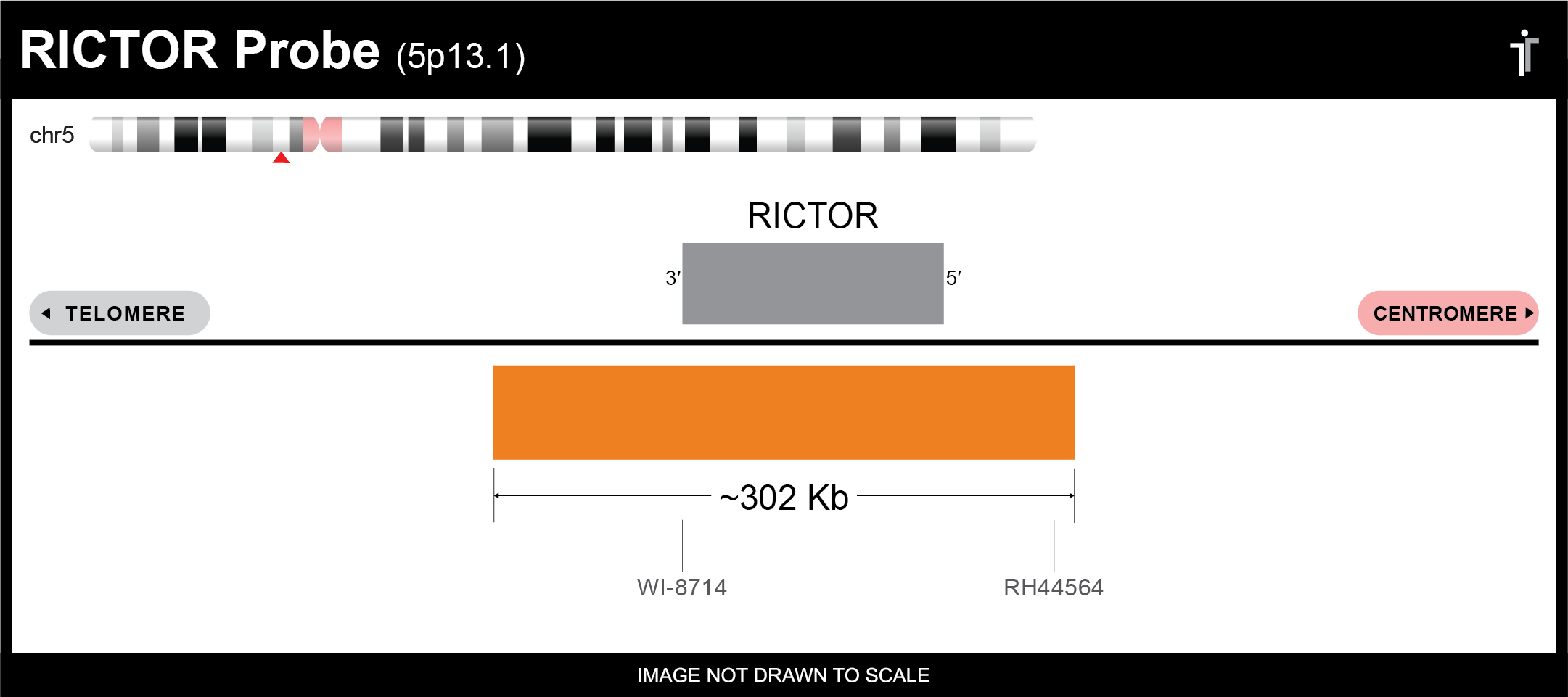RICTOR FISH Probe
Our RICTOR FISH Probe is designed to detect RICTOR amplifications and deletions. The probe comes labeled in orange, but can be customized to meet your needs.

** This product is for in vitro and research use only. This product is not intended for diagnostic use.

| SKU | Test Kits | Buffer | Dye Color | Order Now |
|---|---|---|---|---|
| RICTOR-20-OR (Standard Design) | 20 (40 μL) | 200 μL |

|
|
| RICTOR-20-GO | 20 (40 μL) | 200 μL |

|
|
| RICTOR-20-GR | 20 (40 μL) | 200 μL |

|
|
| RICTOR-20-AQ | 20 (40 μL) | 200 μL |

|
|
| RICTOR-20-RE | 20 (40 μL) | 200 μL |

|
Gene Summary
RICTOR and MTOR (FRAP1; MIM 601231) are components of a protein complex that integrates nutrient- and growth factor-derived signals to regulate cell growth (Sarbassov et al., 2004 [PubMed 15268862]).[supplied by OMIM, Mar 2008]
Gene Details
Gene Symbol: RICTOR
Gene Name: RPTOR Independent Companion Of MTOR Complex 2
Chromosome: CHR5: 38938021-39074501
Locus: 5p13.1
FISH Probe Protocols
| Protocol, Procedure, or Form Name | Last Modified | Download |
|---|